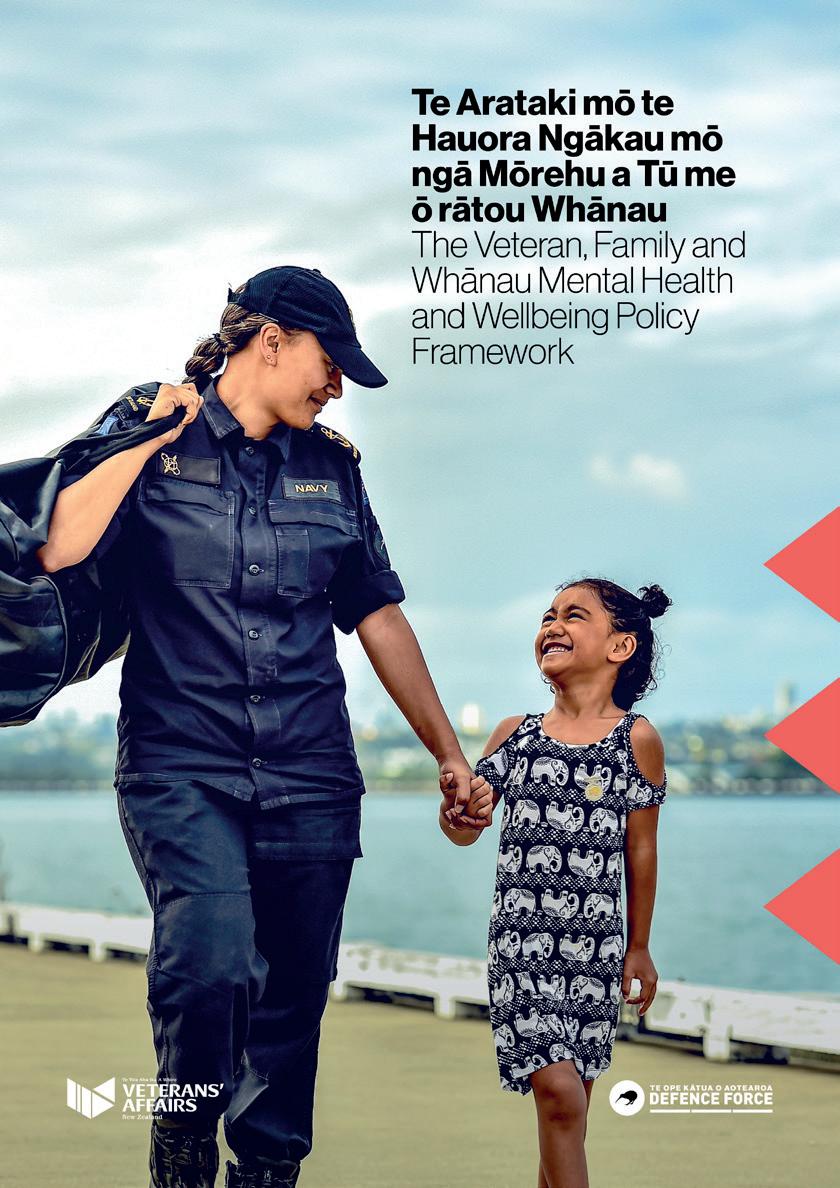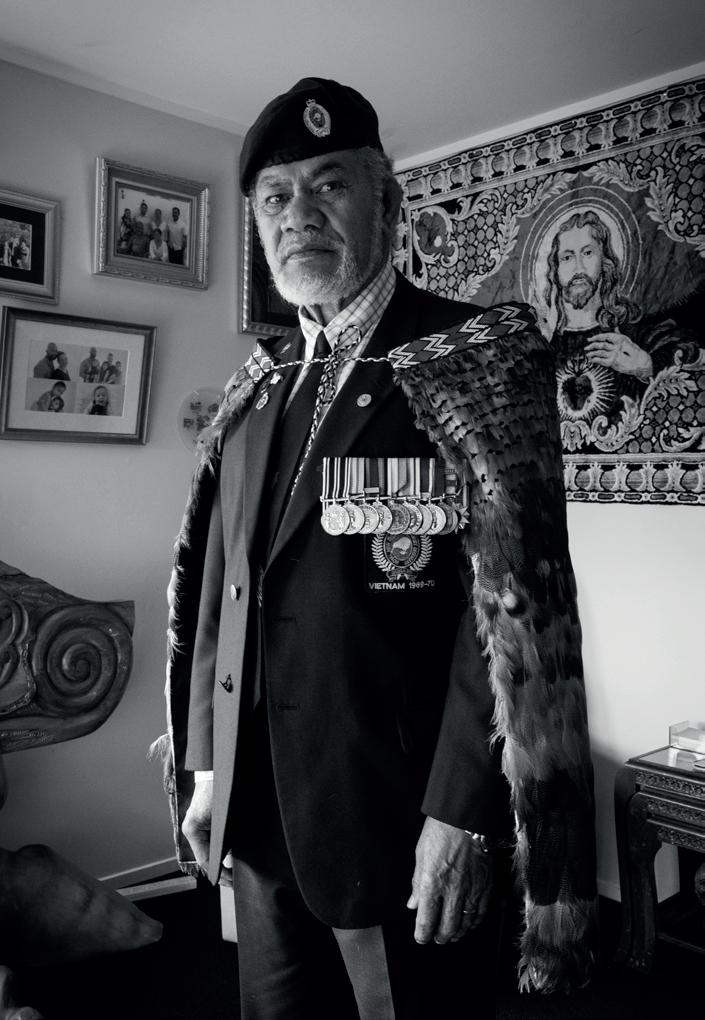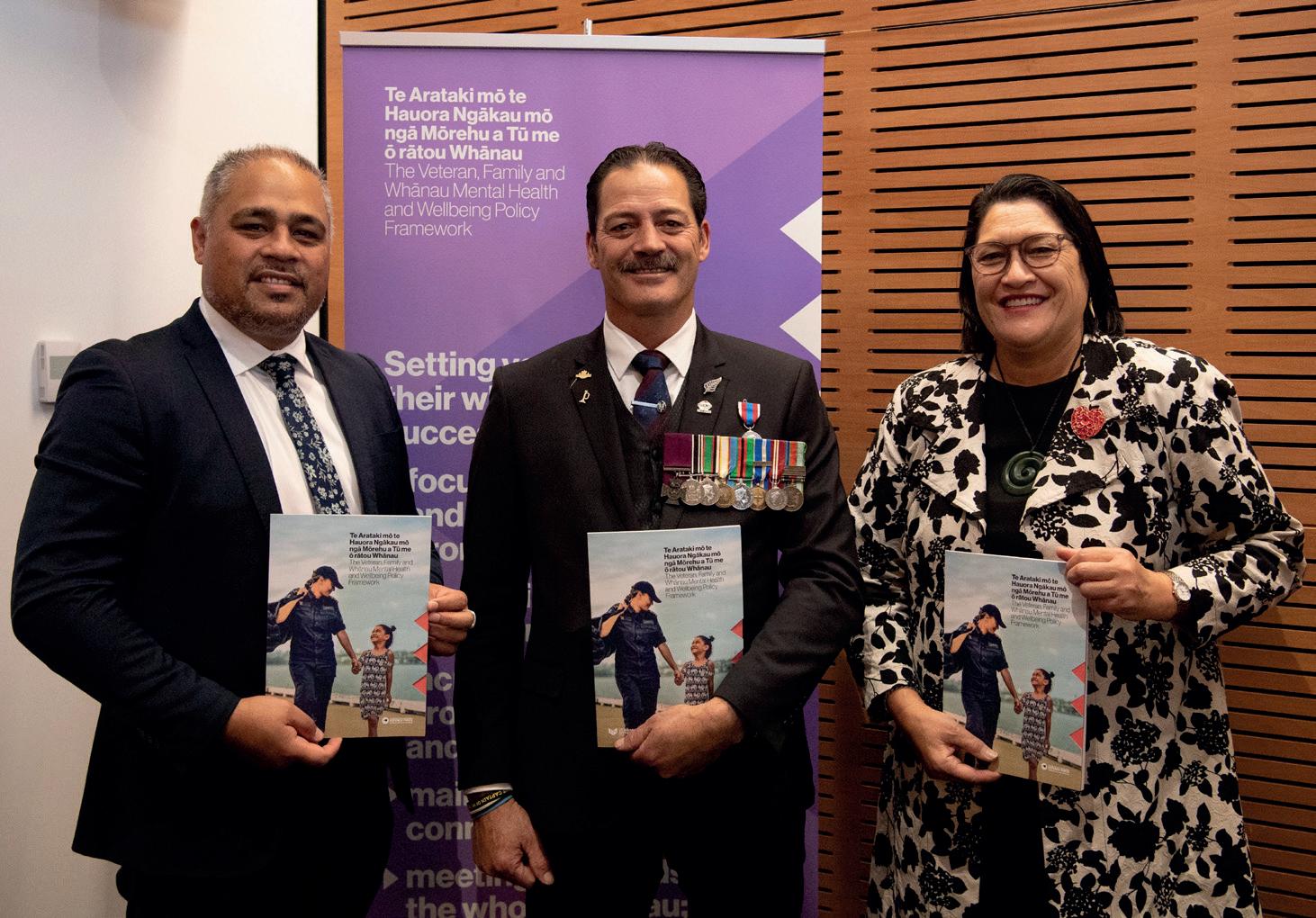
3 minute read
The Veteran, Family and Whānau Mental Health and Wellbeing Policy Framework
Te Arataki mō te Hauora Ngākau mo ngā Mōrehu ā Tū me ō Rātou Whānau
In the Winter issue of our magazine we told you about the planned launch of this Policy Framework, Te Arataki mō te Hauora Ngākau mō ngā Mōrehu a Tū me ō rātou (Te Arataki). This is the name that was gifted to the work by some of the veterans who worked with Veterans’ Affairs and others to bringit to fruition. It is the first ever detailed examination of the mental health and wellbeing of veterans in Aotearoa New Zealand.
Advertisement
The article in our Winter issue traced how this work had been developed to the point where it was going to be officially launched. That launch took place on 29 June at Parliament. There was a Zoom link available and a number of people who weren’t able to be there in person, were able to watch the event and hear the speeches of the Minister for Veterans and the Minister of Defence (who was also speaking as Associate Minister of Health). The Minster of Health was not able to be present, but has also endorsed the Framework.
The aim of Te Arataki is to alert other Government agencies to the challenges that are faced by veterans after service – and the families that support them. These are the sorts of things which are not often understood by agencies and departments who do not work closely with veterans. Te Arataki sets them out very clearly – and also sets out what has been learned by research internationally about what can best support wellbeing for veterans and their families.
You can see a video of the launch at: youtu.be/GKsHsao-e9k.com
We hope that the framework will encourage other agencies to develop their own strategies to support veterans.
Veterans’ Affairs has begun the first steps to help other agencies adopt and operationalize the framework.
Once the launch was over, the next phase of the work on Te Arataki began. This has involved Bernadine MacKenzie, as head of Veteran’s Affairs, meeting with a large number of agencies and departments, accompanied by two other members of the working group that developed the framework, Willie Apiata VC, Veteran Advisor, and Dr Mike O’Reilly, who is the Veterans’ Affairs Clinical Adviser. Their mission was to talk with these organisations about veteran wellbeing and what they might be able to do to contribute to this. As Bernadine has noted in her message at the front of this magazine, the group has had a very positive reception from all of those they’ve called on.
This is a great start. We’ll be keeping you informed in future issues of this magazine about how the action plan that’s being developed, based on Te Arataki, is shaping up.
More information about Te Arataki can be found online at: www.veteransaffairs.mil.nz/about-veterans-affairs/our programmes/mental-healthframework
A powerful message:
The video “Come home” was produced for the launch. It features veterans who describe their experiences and challenges that they faced after leaving service. This video is can be viewed on the Veterans’ Affairs Youtube channel or at this link: youtu.be/QE14qkV0CL0.com

Andy Peters.

Hon. Peeni Henare, Willie Apiata (VC), Hon. Meka Whaitiri.











